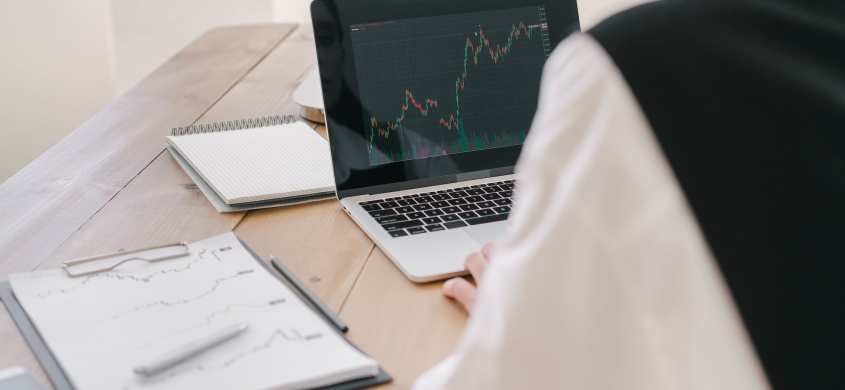Morning Toast 4th July

Highlights
Happy 4th July for all our American readers!
This year’s 4th July celebrations will look a little different. With the East Coast experiencing smoky skies and the West gearing up for another wildfire season, several cities in the United States are starting to recognise that setting off fireworks during the summer might not be the most suitable choice.
Continuing a trend that gained momentum last year, numerous cities, particularly in the Western region, are opting to replace traditional July 4th fireworks displays with captivating drone shows.
Benefiting from a surge fuelled by artificial intelligence, the Nasdaq achieved its strongest first-half performance since 1983, while the S&P 500 recorded its best performance in the first half since 2019. However, investors should not anticipate any major market movements in the upcoming days, particularly on Wall Street, as the US stock market will observe an early closure today and remain closed tomorrow in observance of Independence Day.
Stock Spotlight

In a surprising business maneuver, Elon Musk, the owner of Twitter, has implemented restrictions on the number of posts users can access each day. This move entails daily limits of 1,000 posts for unverified users and 10,000 posts for verified users who pay for the service.
Musk justified these (temporary) rate limits by stating the need to control the "extreme levels" of data scraping conducted by organisations that utilise Twitter conversations to train their AI systems. Meanwhile, it seems that preparations for the highly anticipated Musk versus Zuckerberg face-off are underway.
Stock Spotlight

Monster Beverage, listed as MNST on NASDAQ, has revealed its intention to acquire Bang Energy from Vital Pharmaceuticals for a sum of $362 million through an Asset Purchase Agreement.
The acquisition encompasses the majority of Bang Energy's assets, including a beverage production facility based in Phoenix, AZ.
However, it is crucial to note that the completion of the transaction is subject to approval from the Bankruptcy Court, and there is no assurance that it will be granted. Bang Energy had filed for Chapter 11 bankruptcy in October 2022.
Sustainability News

During the crucial shipping talks in London this week, United Nations Secretary-General Antonio Guterres urged for an agreement to achieve net zero greenhouse gas emissions by 2050. He emphasised the need for faster decarbonisation efforts in the industry. However, China has expressed resistance to the proposed targets, as indicated in a diplomatic note released by Beijing.
Environmentalists and investors have been calling for more concrete action in the shipping sector, including the implementation of a carbon levy. Guterres urged the participants to leave London with a greenhouse gas strategy that commits to net zero emissions by 2050 and includes ambitious science-based targets starting in 2030.
These targets would provide the necessary certainty for the industry and investors. The International Maritime Organisation (IMO), the UN's shipping agency, is currently discussing the details of an upgraded greenhouse gas emissions strategy that will be adopted during the meeting.
Additionally, there are proposals for a global carbon dioxide emissions levy on shipping. While the IMO has pledged to halve greenhouse gas emissions from ships by 2050, China argues that the proposed visions and levels of ambition are unrealistic, particularly the requirement for the industry to achieve life cycle zero GHG emissions by 2050.
China also objected to using revenues from the shipping sector for general climate change adaptations. The country believes that the IMO should consider different national conditions and accommodate the legitimate concerns of developing countries.
Quote of the day
"There was a time when I thought we were going to lose everything" - Sir Richard Branson has managed to retain his billionaire status despite personally losing around £1.5bn during the pandemic.
Douugh, did you know?

What it is
AUD/USD (Australian Dollar - US Dollar) is one of the most frequently-traded currency pairs in the world. The AUD/USD rate tells investors how many US Dollars are needed to buy a single Australian Dollar.
How it works
AUD/USD is the abbreviation for the Australian dollar/U.S. dollar currency pair, known informally as the "Aussie" among forex traders. A currency pair tells the reader how much of one currency is needed to purchase one unit of another currency. In this case, the Australian Dollar (abbreviated AUD) is considered the base currency, and the U.S. Dollar (abbreviated USD) is considered the quote currency, or the denomination in which the price quote is given.
Why it matters
The value of the AUD, relative to other currencies can be an indicator of the health of the economy. This is because the AUD either appreciates or depreciates based on a number of things, including the contrast of our interest rates vs other countries (e.g. the US), the ‘terms of trade’ often driven by commodities prices and international trade.
The interest rate contrast is a key driver of the demand for, and supply of, Australian Dollars. It is also an important driver of capital flows, which measure the money that flows into, and out of Australia for investment purposes.
Terms of trade
The terms of trade measures the ratio of export prices to import prices. In general, an increase in terms of trade is associated with an appreciation of the Australian Dollar, while a decline in terms of trade is associated with a depreciation of the Australian Dollar.
Buying and selling of AUD
Australian Dollars are also bought and sold to facilitate the international trade of goods and services. When Australians export (or sell) goods or services to an overseas buyer, the overseas buyer purchases Australian Dollars to pay the exporter (assuming the export is paid for in Australian Dollars). As a result, an increase in the demand for Australian exports also increases demand for Australian Dollars in the foreign exchange market and an appreciation of the Australian Dollar.
Conversely, when Australians import (or buy) goods and services from an overseas seller, the Australian importer sells Australian Dollars to obtain foreign currency to pay the overseas seller. In this case, when Australians demand more imports, the supply of Australian Dollars in the foreign exchange market increases, and the Australian Dollar depreciates.
Start Investing Today!
Investing involves risk. You aren't guaranteed to make money, and you might lose the money you start with.
Douugh Australia Pty Ltd ABN 76 617 000 138 operates under Douugh Australia Pty Ltd AFS License No. 500063. Although we endeavour to ensure the accuracy of information we provide, we do not accept responsibility of liability for any errors or from any loss from its use. Any information provided is general advice only and has been prepared without considering your objectives, financial situation or needs. We don't provide personalised advice or recommendations. Before making any investment decision you should consider whether it is appropriate for your situation and seek appropriate taxation and legal advice. For more details, see our FSG, Terms of Service and other disclosures.
Stay informed with the Morning Toast
Save time with curated and delivered financial news and insights.